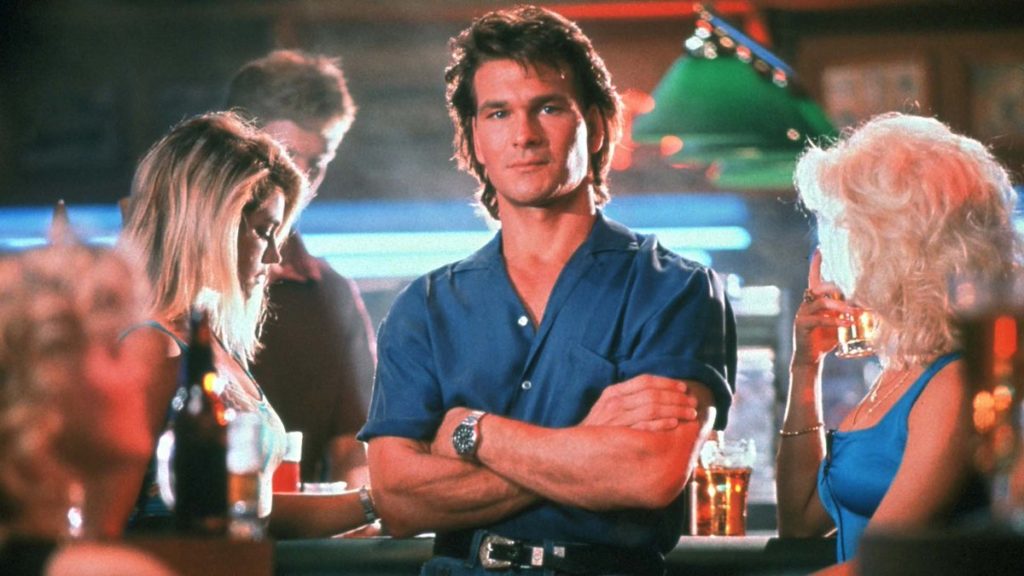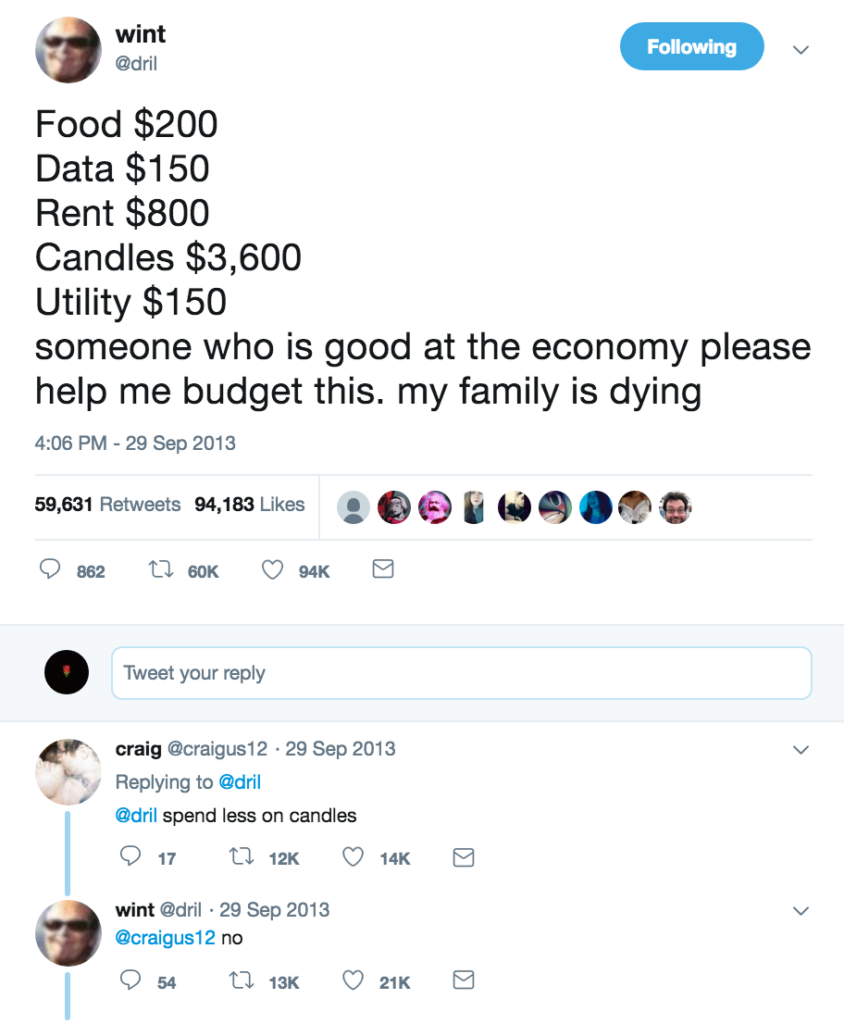According to 2017 research by the Bureau of Labor Statistics, the median pay for a security guard or gaming surveillance officer, the closest career to bouncer or cooler that the BLS tracks, was $26,900 a year. Assuming Sundays off and not counting the stipulated coverage of all medical expenses, a conservative estimate of the yearly salary paid to Dalton by Frank Tilghman for his services as a cooler at the Double Deuce comes to $328,259.17 in 2019 dollars.
Tilghman prefaces his offer of employment to Dalton by saying “I’ve come into a little bit of money [and] I’d like to make a better life for myself.” Based on the elaborate redesign for the Double Deuce unveiled later in the film, he’s not kidding about the money. But the redesign, which we see him penciling on drafting paper the night Dalton shows up in Jasper, is meaningless if the volume of patrons required to make a bar that large and expensive a worthwhile investment doesn’t materialize. As Dalton himself puts it, “People who really wanna have a good time won’t come to a slaughterhouse.”
Dalton is the man who puts a stop to the slaughter. Though neither man knows it will happen when they make their deal, Dalton also breaks the back of the local organized-crime outfit, which according to Red Webster takes a minimum of “ten percent—to start” of gross income from every business in town. In fact, by personally murdering five of the town’s most violent criminals, beating a dozen or so others badly enough that they will never return, and driving one more to a Damascene conversion by dropping a stuffed polar bear onto him in a rich lunatic’s basement, Dalton eliminates the town’s bad element altogether.
Three-twenty-eight large is a bargain.
Tags: dalton, money, road house, tilghman


